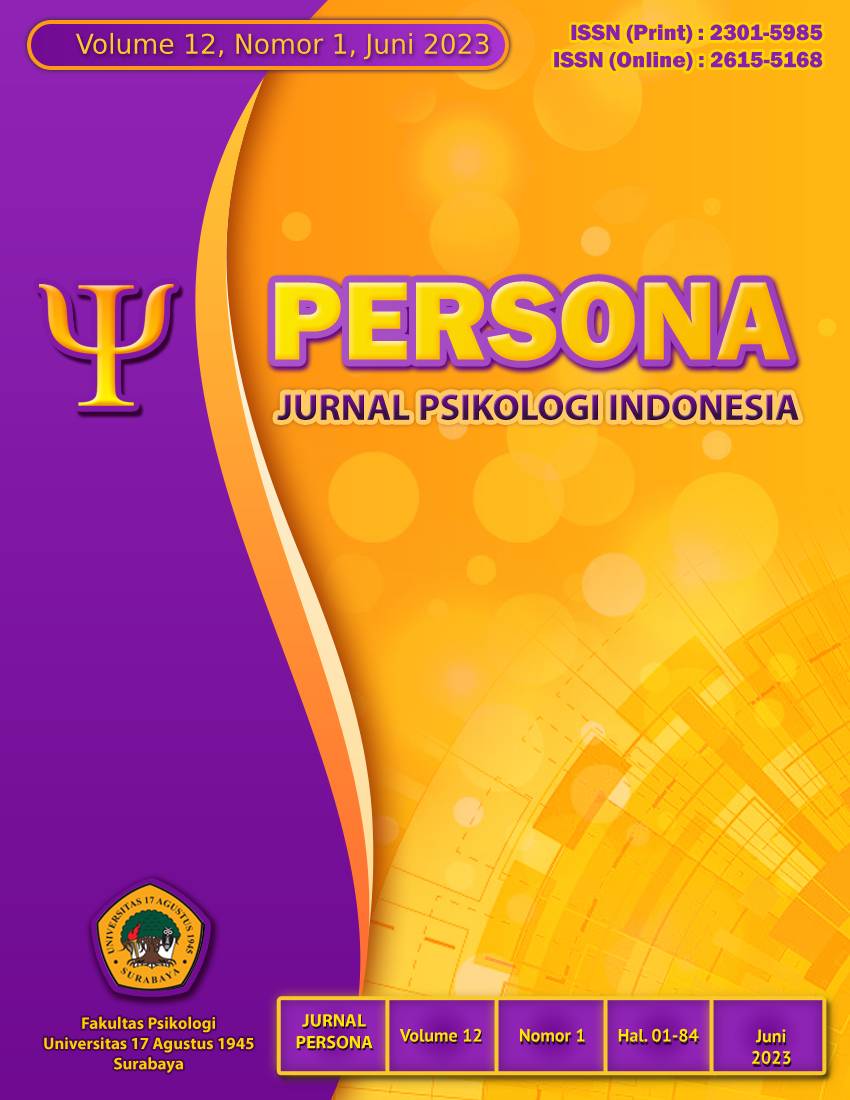Work stress dan turnover intention pada karyawan milennial: Peran mediasi supervisor support
Work stress and turnover intention in millennial employees: The mediating role of supervisor support
DOI:
https://doi.org/10.30996/persona.v12i1.9385Keywords:
millennial employee, supervisor support, turnover intention, work stressAbstract
In an era of dynamic work, millennials face unique challenges related to job stress that can impact their intention to leave their job, known as turnover intention. This scientific article explores the relationship between work stress and turnover intentions in the millennial generation, focusing on the mediating role of supervisor support to reexamine whether superiors are one of the determinants of millennial employee turnover intentions. This study used a non-probability sampling method with a purposive sampling technique. The subjects of research were millennial generation employees, with at least 3 months of work. Respondents came from Malaysia (64 people) and Indonesia (152 people), with a total of 216 respondents. The instruments used were the Turnover Intention Scale, General Work Stress, and Supervisor Support which have been tested. The research results show: 1). a quite strong and significant relationship between work stress and turnover intention; 2). supervisor support is not significant on turnover intentions; and 3). The effect of work stress on turnover intention with supervisor support as moderate is not significant. The novelty of the results of this research is that it is very inspiring information for management policies for millennial employees who want to stop working by overcoming sources of work stress and fostering a collegial nature with co-workers. Research implications are discussed
Downloads
Downloads
Published
Issue
Section
License
The author who will publish the manuscript at Persona: Jurnal Psikologi Indonesia, agree to the following terms:
1. Authors retain copyright and grant the journal right of first publication with the work simultaneously licensed under a Creative Commons Attribution ShareAlike License that allows others to share the work with an acknowledgment of the work's authorship and initial publication in this journal.
2. Authors are able to enter into separate, additional contractual arrangements for the non-exclusive distribution of the journal's published version of the work (e.g., post it to an institutional repository or publish it in a book), with an acknowledgment of its initial publication in this journal.
3. Authors are permitted and encouraged to post their work online (e.g., in institutional repositories, pre-prints sites or on their website) prior to and during the submission process, as it can lead to productive exchanges, as well as earlier and greater dissemination of published work






